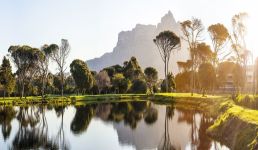Hailed as one of the top attractions in India and an edifice only second to Taj Mahal, Mysore Palace also known as Amba Vilas. Mysore Palace is a visual delight and an architectural marvel with awe-inspiring intricate beauty.
Mysore palace has been converted into a museum that displays a wide array of exhibits showcasing the exuberant lifestyle of the dynasty. View the priceless jewelry, portraits and paintings, souvenirs, royal costumes, and other items including an original painting by the legendary artist Raja Ravi Varma and a painting illustrating the eight manifestations of the Goddess Shakti.
Best Time to Visit Mysore Palace
The best time to visit the Mysore Palace is during Dussehra festival. The 10 days of the festival is celebrated with a lot of grandeur. The palace comes alive with full glory during the time and the spectacular Royal Golden Throne that consists of the main seat, a staircase and a golden umbrella is also put on display and is a spectacular sight to behold.
How to Reach Mysore Palace
By Air
The nearest Airport is the Bangalore airport. From the airport, Mysore Palace is about 181kms
By Train
Mysore is well connected by railways from all the parts of the country. Trains 6210 Express, 6222 Kaveri Express, and the Shatabdi Express run between Mysore and Bangalore regularly.
By Bus
There are regular bus services from Bangalore to Mysore. Bangalore is well connected to major cities in the state as well as others such as Mumbai, Hyderabad etc.
Timings of Mysore Palace
10:00 am – 5:30 pm, Daily
Light & Sound Show: 19:00 pm – 19:40 pm, Monday - Saturday
Mysore Palace Ticket
|
TICKET TYPE
|
PRICE
|
|
Adult
|
INR 50
|
|
Child (7-11 years)
|
INR 30
|
|
Sound and Light Show
|
|
Adult
|
INR 50
|
|
Child (7-11 years)
|
INR 30
|
Highlights of Mysore Palace
• One of the most fascinating features of the Mysore Palace is the Durbar Hall is its beautifully painted columns that create an illusion of endless corridors.
• The octagon-shaped Kalyana Mantapa, where royal weddings and functions were organized, features a prominent feature of 26 paintings that depict the Dasara procession and stained-glass ceiling that is decorated with marvelous peacock motifs and floral mandalas.
• Immerse in the history of the Wodeyar Dynasty and as you tour, marvel at the breathtaking beauty of the brilliant architecture reflecting the Indo Saracenic style.
• The palace consists of 12 temples dedicated to Lord Shiva, Lord Krishna, and many others.
• On Sundays and Dussehra Celebrations, witness the striking sight of the palace which gets illuminated using 97,000 electric bulbs and is a riveting sight to behold.
• Watch the spectacular Sound and Light Show which is a weekly attraction at the Mysore Palace.
History of Mysore Palace
Built in the 14th century, the magnificent intricately carved and embellished palace was originally constructed of solid wood, only to get burnt down in 1897, during the wedding of Jayalakshammanni, the eldest daughter of Chamaraja Wodeyar- the Maharaja of Mysore state. It was then rebuilt in 1912 at the cost of INR 42 lakhs. The present palace is erected in Indo-Saracenic style and is a tasteful mélange of Hindu, Muslim, Rajput, neo-classic and Gothic styles of architecture within a three-storied stone structure. Above the central arch is an impressive sculpture of Gajalakshmi along with her elephants- the goddess of wealth, prosperity, good luck, and abundance. Designed by the well-known British architect of that era- Henry Irwin, Mysore palace is a treasure house of artwork and splendid carvings from around the world.
Mysore Palace is a priceless national treasure, pride of Mysore and a prominent tourist attraction luring millions of tourists throughout the year. Facing Chamunda Hills, it was the official residence of the famed Wodeyar dynasty that ruled from 1399 – 1950. The sprawling resplendent palace comprises of two exquisitely ornated durbar halls, finely chiseled solid silver door, pink marble ceilings, several gigantic courtyards, buildings and strikingly splendid gardens. The main attractions are the Doll’s Pavilion, Elephant Gate, Golden Throne, Portrait Gallery, Marriage Pavilion, Swan Centrepiece, Royal Furniture, Wrestling Courtyard and the 12 temples inside the palace.
Recommended For
Mysore Palace is recommended for all those who wish for a historical tour to admire the majesty and grandeur, discover the Royal history of the Wodeya Dynasty and the intriguing lives of its inhabitants.
Interesting Facts About Mysore Palace
• Mysore Palace is visited by more than 6 million visitors annually.
• The original palace was built of wood in the 14th century.
• During the regime of Raja Wodeyar II in 1638 the original palace got damaged by a lightning strike. It was later repaired and further extended.
• The old palace was demolished and a new one was built in 1803 under the regime of Krishnaraja Wodeyar III.
• In 1897 during the wedding of Princess Jayalakshmanni, the palace got completely destroyed in a fire.
• Vani Vilas Sannidhana, Queen of the then ruler Chamaraja Wodeyar X commissioned Henry Irwin, a renowned architect of British India to design the modern Mysore palace which we see today.
• The opulent palace has a 145-ft five-storied tower
• The main doorway known as the Elephant Gate comprises of two mounted heads of elephants shot by the King in 1955 and a crest containing a double-headed eagle – the lion symbolizing power and royalty, and the elephant strength. All ceremonial processions began outside this gate amidst the sounds of marching bands, regiments of soldiers, garlands of flowers, decorated animals, heraldic flags and sacred umbrellas, the king riding in his gold howdah atop elephant would travel through this corridor and head on into town.
• The royal throne called the Chinnada Simhasana or Ratna Simahasana is always put on display during the Dussehra festival and comprises of an impressive artwork on its goldplate.
• Mysore Palace is the venue for the famous Mysore Dasara Festival which is celebrated over 10 days, during which leading artists perform on a stage set up in the palace grounds. On the tenth day of the festival Vijaya Dashami, a parade with caparisoned elephants and other floats originate from the palace grounds.
Location of Mysore Palace
Sayyaji Rao Rd, Agrahara, Chamrajpura, Mysuru, Karnataka 570001
https://www.google.com/maps/place/Mysore+Palace/@12.3051351,76.6529596,17z/data=!3m1!4b1!4m5!3m4!1s0x3baf701103f9a1f9:0xc37fbae2a124da0d!8m2!3d12.3051351!4d76.6551483











